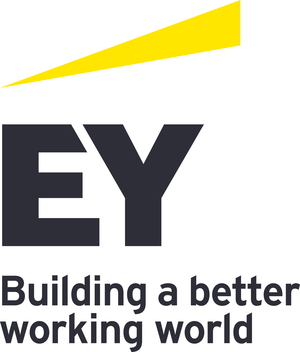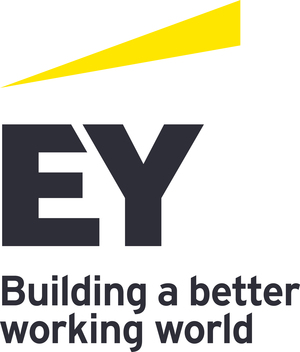
- Growth remains steady: MedTech recorded its sixth successive year of topline growth and is now a US$587 billion industry.
- Compelling AI use cases are emerging across the MedTech value chain.
- Innovation continues to drive the industry forward: Last year showcased a record year for FDA product approvals, including highly differentiated new launches in areas like cardiovascular, robotics and radiology.
- Higher costs continue to pressure profit margins: The cost of MedTech's inputs have risen, with factors such as inflation and expensive commercial models resulting in higher selling, general and administrative (SG&A) expenses.
NEW YORK, Oct. 7, 2024 /PRNewswire/ -- The global medical technology (MedTech) industry continued to face broader macroeconomic forces, causing industry players to walk a narrow path between converging topline and bottom-line pressures. Despite this, ongoing breakthroughs in AI and other emerging growth opportunities like the rise of consumer engagement in health technology keep steady growth and profitability within reach, as described by the 18th annual Pulse of the MedTech Industry report produced by Ernst & Young LLP (EY US).
"MedTechs face several challenges such as increased input costs, tighter reimbursement, payment pressures from hospital systems and an increasingly complex customer dynamics," says Arda Ural, PhD, EY Americas Life Sciences Leader. "The lower interest rates will help the capital markets and fund continued innovation. Higher valuations can also trigger a renewed look at the portfolio composition."
Pulse of the MedTech Industry captures the current state of the US and European MedTech industry, as expressed in financial performance, spending trends, M&A, R&D and other measures. In addition to guest perspectives, the report outlines five key areas that will strengthen the industry's transformation and position the MedTech industry for future success:
- The search for high-growth opportunities
- Cost optimization measures
- Adapting revitalized commercial models
- Harnessing AI for significant growth and competitive advantage
- Capitalizing on the direct-to-consumer market
"The challenges MedTechs have experienced during 2023 to 2024 have placed more emphasis than ever before on the need for companies to develop successful commercial models," said Jim Welch, EY Global MedTech Leader. "Not only will a better commercial model execution be integral to building the company's topline, but it will allow them to build agile cross-functional teams that can respond to demand signals in near real time. This is especially true when considering the implications of new AI-powered tools across the enterprise."
As detailed in the report, the industry's performance in the first half of 2024 underlines the increasing struggle to achieve growth in the current operating environment. As a result, MedTechs have been increasingly cautious about acquisitions and are instead prioritizing the streamlining of their portfolios. Further, from July 2023 to June 2024, 99 M&A deals were completed, the lowest annual total in 15 years.
The 42% drop in deal volume in the 12 months preceding the end of June 2024 was, however, accompanied by an 18% increase in deal value, which hit US$57.7 billion.
Other key findings include:
- In 2023, profits nearly doubled year-over-year but the US$12.5 billion the industry claimed in 2022 was a five-year low.
- While R&D expenses have remained between 5% and 6% of total revenues for the sector for the last five years (coming in at US$33.2 billion for 2023), SG&A expenses ate up 22% of revenues in 2023, clocking in at US$127.2 billion (up 12.8% year over year).
- While commercial leaders overall recorded 14.3% top-line growth in 2023, the emerging leaders (those with annual revenues below US$500 million) experienced a 9.1% revenue decline due to a constrained financing environment.
- In all, innovation capital, the amount of investment going to MedTechs, only represented 44% of the financing raised by MedTech over the 12-month period. At the height of investor interest in MedTech during the COVID-19 crisis, innovation capital represented 67% of MedTech financing, hitting US$28.5 billion in the 12 months between July 2020 and June 2021; the total for 2024 is only 42% of this figure.
While pressures will remain for the foreseeable future, companies that are delivering on the promise of continuing innovation and adoption of AI technologies across their enterprises is reason to be optimistic. With more focused portfolios, better defined commercial models and refined customer segmentation, industry leaders are poised for success leading to better patient outcomes.
To read Pulse of the MedTech Industry, visit ey.com/pulse.
About EY
EY exists to build a better working world, helping create long-term value for clients, people and society and build trust in the capital markets.
Enabled by data and technology, diverse EY teams in over 150 countries provide trust through assurance and help clients grow, transform and operate.
Working across assurance, consulting, law, strategy, tax and transactions, EY teams ask better questions to find new answers for the complex issues facing our world today.
EY refers to the global organization, and may refer to one or more, of the member firms of Ernst & Young Global Limited, each of which is a separate legal entity. Ernst & Young Global Limited, a UK company limited by guarantee, does not provide services to clients. Information about how EY collects and uses personal data and a description of the rights individuals have under data protection legislation are available via ey.com/privacy. EY member firms do not practice law where prohibited by local laws. For more information about our organization, please visit ey.com.
About EY Consumer Health
The rise of the empowered consumer, coupled with technology advancements and the emergence of digitally focused entrants, is changing every aspect of health and care delivery. To retain relevancy in today's digitally focused, data-infused ecosystem, all participants in health care today must rethink their business practices, including capital strategy, partnering and the creation of patient-centric operating models.
The EY Consumer Health architecture brings together a worldwide network of 34,000 professionals to build data-centric approaches to customer engagement and improved outcomes. We help our clients deliver on their strategic goals, design optimized operating models and form the right partnerships so they may thrive today and succeed in the health systems of tomorrow. We work across the ecosystem to understand the implications of today's trends, proactively finding solutions to business issues and to seize the upside of disruption in this transformative age.
Carol Piering
EY US Public Relations
[email protected]
SOURCE EY








Share this article